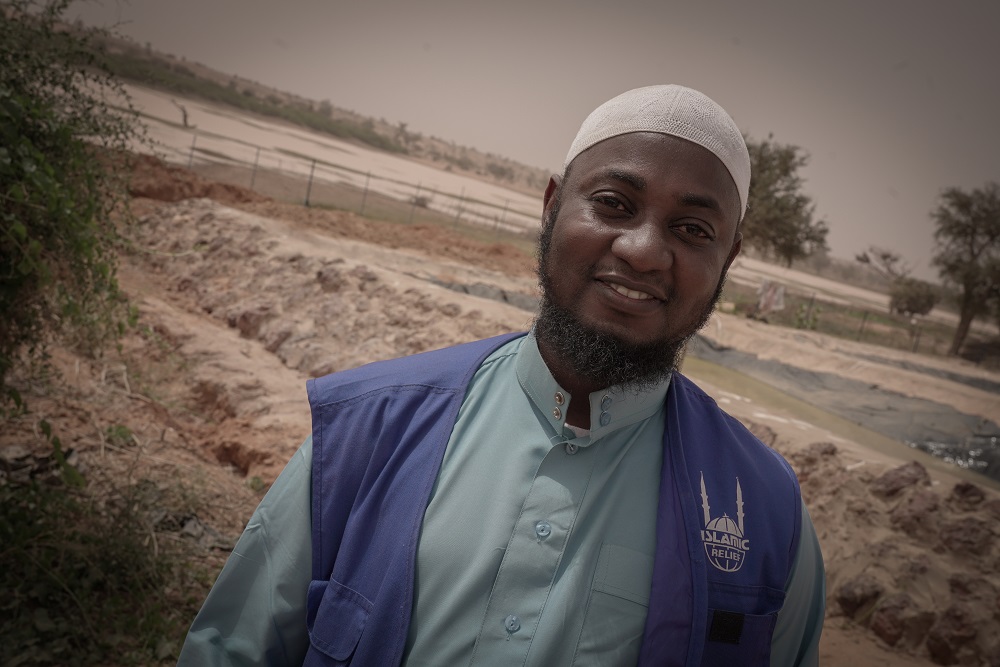In one of the world’s poorest countries, community-based adaption is reducing extreme poverty and hunger, writes Ibro Madougou Abdoulaye, Head of Programmes for Islamic Relief Niger.

When it comes to adapting to climate change, no one size fits all. That’s why we work closely with communities to understand and respond to their unique circumstances.
It’s an approach that is making a big difference in Niger.
In the heart of the country’s Dosso region is Dogondoutchi district. With most local families dependent on agriculture or livestock, it is on the frontline of the global climate emergency, as its natural resources are increasingly depleted.
Alongside land degradation, rainfall is becoming increasingly erratic. Droughts and flooding are happening again and again. Failed harvests are all too common, leaving many families unsure where their next meal is coming from.
Alarming rates of child malnutrition
One consequence of this is the alarming rates of child malnutrition in Dogondoutchi. I see families unable to properly feed their children, feeding them the same as adults due to poor knowledge of nutrition and also unable to pay for badly needed medical treatment.
Nearly 80% of children in the district don’t have at least four food staples to eat.
With few opportunities to diversify their incomes, save money or invest in more profitable businesses, many households are locked into a downward spiral of deepening poverty and food insecurity.
They’re forced to skip meals or sell off possessions to try to make ends meet. And some leave the area in search of work elsewhere.
Listening to local knowledge in plans and action
Islamic Relief, which has been working in Niger for 15 years, works closely with communities in the district. We help them use their local knowledge to plan how best to adapt to the changing climate through new technologies and activities.
In Dogondoutchi last year we began a new project in ten villages. Bringing 1,000 families together in farmers’ cooperatives, we installed solar powered irrigation facilities to water communal plots of land.
We gave the families training and items such as tools and seeds, and they’re now using the plots to grow different types of crops, including vegetables with high nutritional value, to eat and sell.
The new fish ponds we constructed mean they can farm fish, diversifying their diets as well as offering a new source of income.
We’ve also trained some local people to coach others in farming and agricultural techniques as well as conservation farming, producing compost and more. By spreading the knowledge throughout communities, these training champions are boosting resilience and broadening the impact of the project.
Addressing harmful gender imbalance
And – crucial to lifting communities out of poverty – the scheme is empowering local women in Dogondoutchi. Here there’s a patriarchal culture in which men usually make decisions on behalf of the family.
With little or no control of productive assets such as land, income and large animals, women – particularly lone women – experience greater levels of food insecurity and poverty than men.
So if we want to achieve social justice and deliver sustainable development that really works (and here at Islamic Relief, we certainly do) then we must reduce gender inequalities.
That’s why our project in the district targets men and women equally, with both supported to improve their livelihoods and take part in decision-making.
The comprehensive project is benefiting 7,000 people. It includes giving households access to credit to boost their livelihoods, educating communities to prevent child malnutrition, promoting good hygiene practices and tackling gender-based violence.
Please support our life-changing work to reduce poverty around the world: Donate now.










